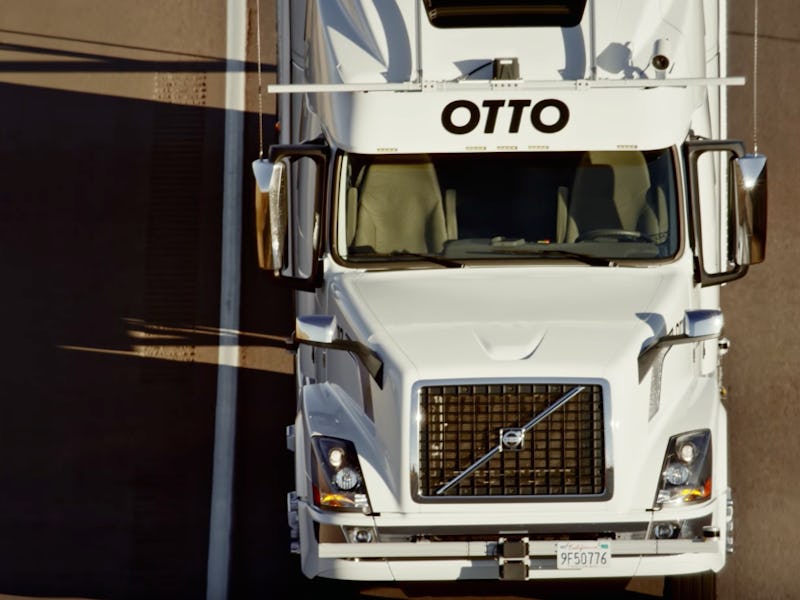Michigan’s Governor Rick Snyder is expected to sign a bill passed by the Michigan State Legislature Thursday that would make the state the first in the country to make it legal to operate driverless cars on the road without a driver or a steering wheel. A provision in the new Michigan law would also allow for the “platooning” of autonomous commercial trucks.
According to the bill “platooning” is defined as “a group of individual motor vehicles that are traveling in a unified manner at electronically coordinated speeds.
The provision is great news for Uber which, with its recent acquisition of the autonomous truck company Otto, has expressed intentions to overhaul the trucking industry in the United States. The company had its first test — a beer-run — in October in Colorado.
Telsa has also staked a claim in the future of driverless trucking, announcing plans in July to start producing all-electric semi trucks in 2017.
“I think the role of [truck] drivers will sort of translate to ‘fleet manager’,” Musk said recently. “I think that’s a more interesting job than driving one.
“We are planning to utilize the Michigan law as soon as possible - we will start commercially deploying our platooning system next year, and will have product on the road much sooner than Otto or Tesla,” Jonny Morris of Peloton tells Inverse.
The set of bills is just one of a number of legislative attempts by the state government to prime Michigan as the home for driverless vehicles. Previously proposed bills have included giving driverless cars life in prision.
While the lax laws in California and Pennsylvania allowing autonomous cars with drivers on open roads have traditionally attracted companies like Google and Uber, Michigan has become a bigger player in the past year. In May, Google announced plans with Chrysler to build a self-driving car development center in the state. Uber’s first tests for its driver less service have been in Pittsburgh and San Francisco, but the new laws make Michigan an attractive next choice.
However, the bill still raises questions about how the state will build the kind of infrastructure needed for the safe use of driverless vehicles. Right now, Michigan guidelines state that a car would have to drive one million miles of road testing. Tesla reports that its users have driven 222 million miles on the road using Autopilot, but CEO Elon Musk has also made it clear that Autopilot is not ready to function without a human driver.
And with the National Highway Traffic Safety Administration moving toward codifying national regulations for driverless cars through the Department of Transportation, it’s likely that autonomous vehicles are going to have to meet federal guideline to go driverless, regardless of what Michigan decides.
